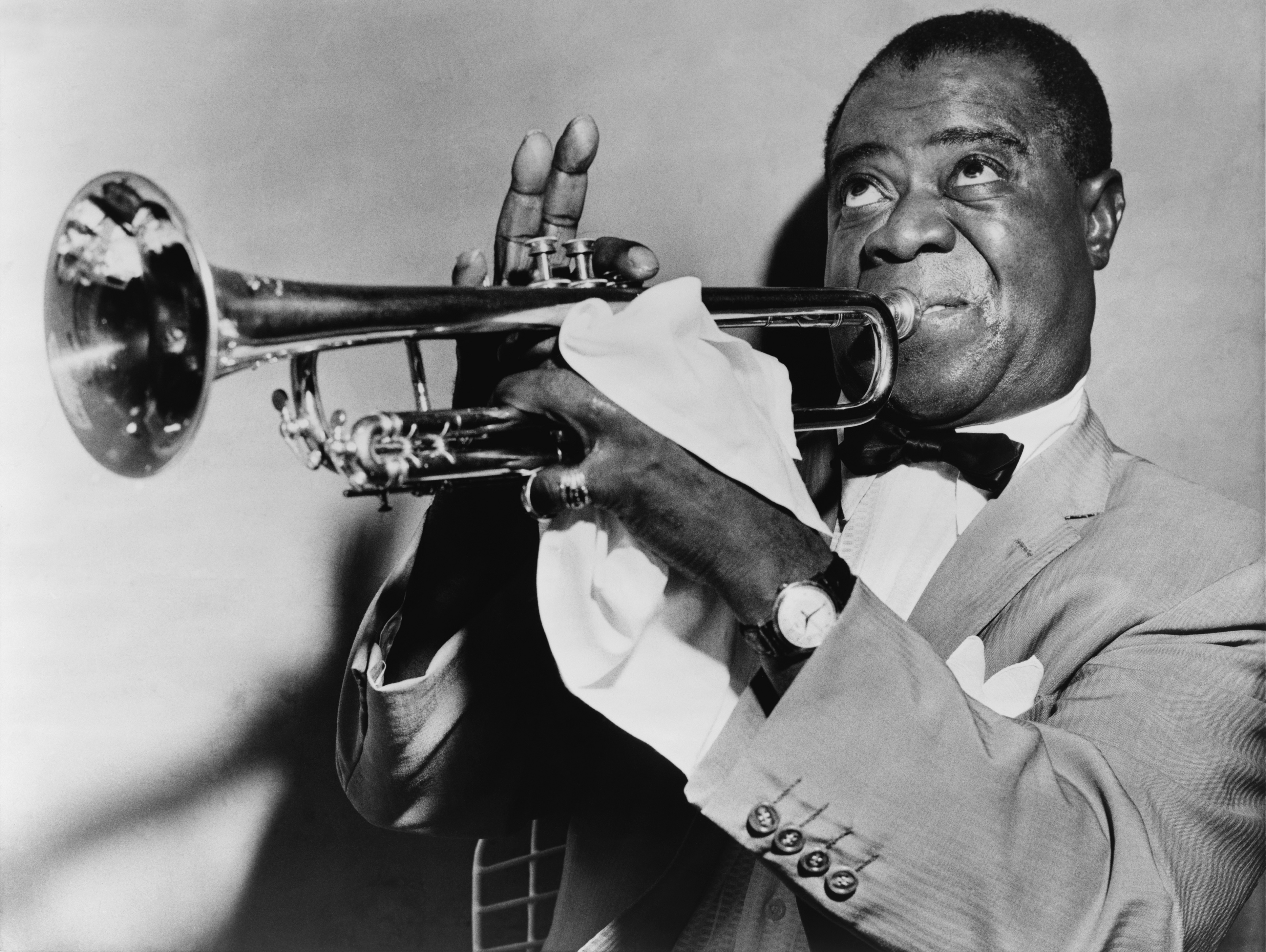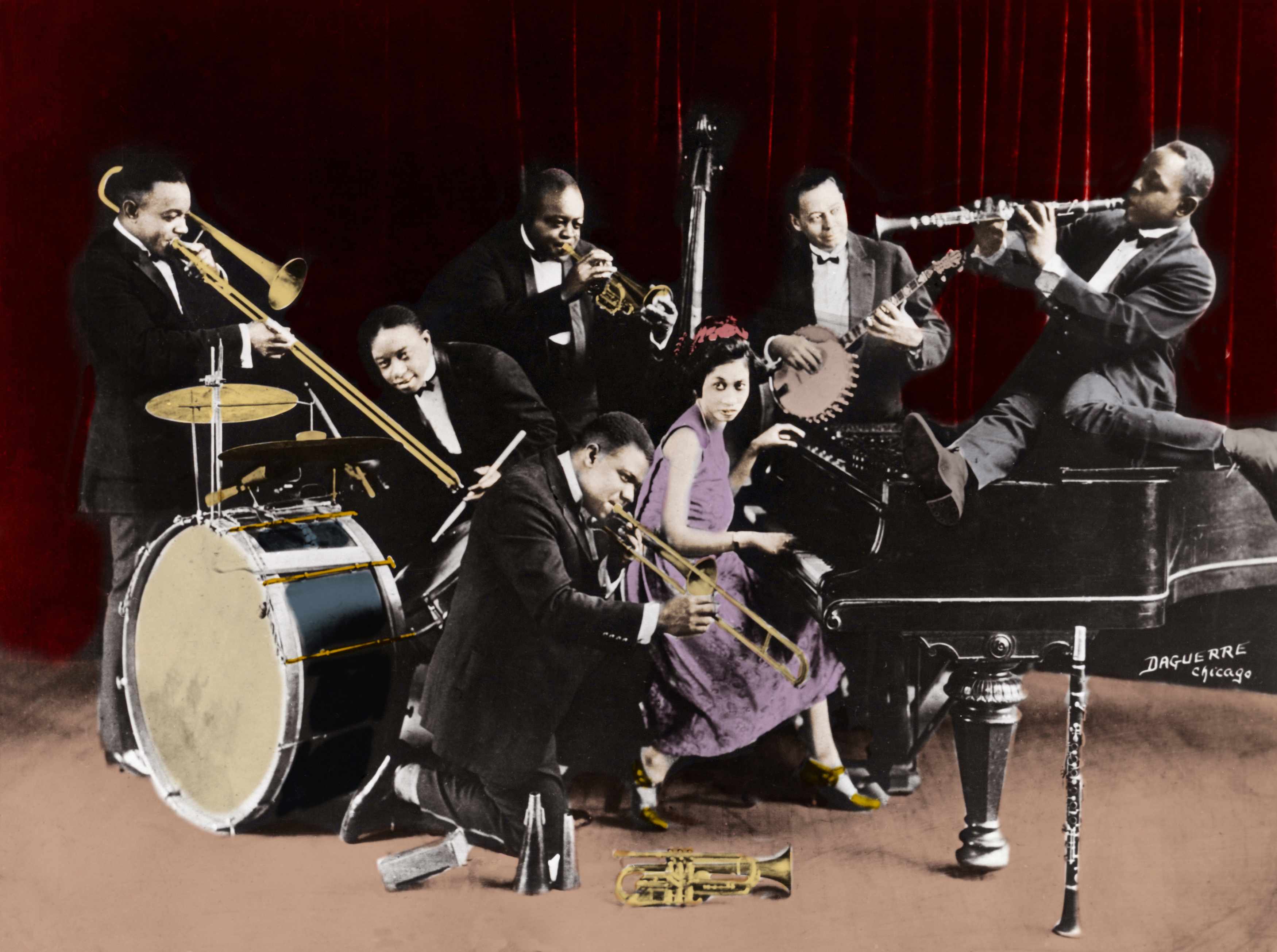Armstrong, Louis (1901-1971), was one of the most famous and influential performers in the history of jazz. Armstrong gained recognition as the world’s greatest jazz cornet and trumpet player in the 1920’s and early 1930’s. He also became famous as a singer with his distinctive gravelly voice. He was known by the nicknames “Satchmo” (short for “Satchel Mouth,” referring to his large mouth) and “Pops.”

Louis Armstrong was born on Aug. 4, 1901, in New Orleans. He learned to play the cornet while serving a sentence for delinquency in the Home for Colored Waifs. In 1922, Armstrong left New Orleans to join King Oliver’s Creole Jazz Band in Chicago. His first recorded solo appears on the band’s recording of “Chimes Blues” (1923). Armstrong was coached by Lil Hardin, the band’s classically trained pianist. They were married in 1924. In that year, with Hardin’s encouragement, Armstrong left Oliver to join the Fletcher Henderson band in New York City.

In 1925, Armstrong returned to Chicago. There, during the next three years, he made a series of small band recordings that rank among the masterpieces of jazz. Many of these recordings were issued under the names Hot Five and Hot Seven. They showed Armstrong’s brilliant tone and tremendous range. Classic recordings from this time include “Cornet Chop Suey” (1926), “Potato Head Blues” (1927), “Struttin’ with Some Barbecue” (1927), “Hotter than That” (1927), “Tight Like This” (1928), “West End Blues” (1928), and a duet with pianist Earl Hines called “Weather Bird” (1928).
In the Hot Five recording of “Heebie Jeebies” (1926), Armstrong first employed scat singing, a form of rhythmic wordless singing. Many singers adopted the style. During this period, Armstrong switched from the cornet to the trumpet.
Starting in 1929, Armstrong appeared in musical shows, often as featured soloist with a big band. By the mid-1930’s, he had become less of a jazz artist and more of a popular entertainer, on the advice of his managers. However, he retained his brilliance as a trumpeter. In 1947, Armstrong formed the first in a series of small bands called the All-Stars. As he grew older and his health declined, he played less and sang more. A new generation of fans in the 1950’s and 1960’s knew Armstrong primarily as an outgoing singer and entertainer. He made several hit vocal recordings, including “Hello, Dolly!” (1964) and “What a Wonderful World” (1967). Armstrong wrote an autobiography, Satchmo: My Life in New Orleans (1954). A selection of his personal writings was published as Louis Armstrong: In His Own Words (1999). Armstrong died on July 6, 1971. He was inducted into the Rock and Roll Hall of Fame in 1990 as a performer who had an early influence on rock music.
See also Teagarden, Jack.
